Every day, millions of people scroll through TikTok, Instagram, and YouTube looking for quick health fixes. Someone posts a video claiming that drinking apple cider vinegar cures migraines. Another says they stopped their blood pressure meds after seeing a ‘doctor’ on Instagram. A third promotes a ‘secret’ supplement that ‘reverses diabetes.’ These aren’t just harmless trends-they’re dangerous. Unsafe medication advice on social media is spreading faster than ever, and the consequences can be deadly.
Why Social Media Is a Minefield for Medication Advice
Social media doesn’t care if your health is at risk. It cares about engagement. The more shocking, emotional, or controversial a post is, the more it gets pushed to your feed. That’s why you see posts like: “I cured my autoimmune disease with lemon water and fasting” or “This $20 supplement replaces your prescription.” These aren’t medical breakthroughs-they’re content designed to make money or gain followers. The problem got worse during the pandemic. With lockdowns and fear everywhere, people turned to social media for answers. The World Health Organization called it an “infodemic”-a flood of misinformation that matched the spread of the virus itself. Today, nearly 60% of Americans use the internet to look up health info. But most don’t know how to tell real advice from fake.Red Flags That Mean the Advice Is Unsafe
Here are five clear signs the medication advice you’re seeing is risky:- The person isn’t a licensed professional. Anyone can post online. A fitness influencer with 500K followers isn’t a doctor. A pharmacist’s license is public record. If they won’t show you their credentials-or if they’re just calling themselves a “health coach”-walk away.
- It sounds too good to be true. “Miracle cure,” “secret remedy,” “doctor’s not telling you this”-these are classic red flags. Real medicine doesn’t work that way. If something claims to cure everything from arthritis to cancer in one week, it’s a scam.
- It’s pushing a product. If the post ends with “Link in bio” or “Use code SAVE20,” they’re selling something. Health influencers often get paid to promote supplements, teas, or devices. Their goal isn’t your health-it’s their commission.
- It ignores your personal history. What works for one person can kill another. Someone might say, “I stopped my insulin and felt amazing.” But if you have type 1 diabetes, stopping insulin means going into a life-threatening coma. Medication advice must be personalized. Social media can’t do that.
- No credible sources are cited. Real medical advice cites studies, guidelines, or institutions like the CDC, FDA, or peer-reviewed journals. If the post just says “I read it online” or “My friend tried it,” that’s not evidence-it’s gossip.
How Algorithms Make It Worse
You’re not seeing this content by accident. Social media algorithms are designed to keep you scrolling. If you’ve liked or watched even one video about “natural cures for high blood pressure,” the algorithm will keep feeding you more-like it’s a rabbit hole. Soon, you’re watching videos from people who have no medical training, all saying the same thing. This is called an “echo chamber.” A study from the University of Denmark found that people with strong opinions about vaccines ended up seeing completely different, often false, information than those with opposing views. The algorithm doesn’t care about truth. It cares about what keeps you watching. Worse, once you’ve been exposed to misinformation, correcting it is hard. Research shows that people are more likely to believe a lie if they’ve heard it before-even if they’re later told it’s false. That’s why “pre-bunking” works better than fact-checking after the fact. Seeing accurate info before you see the scam makes you less likely to fall for it.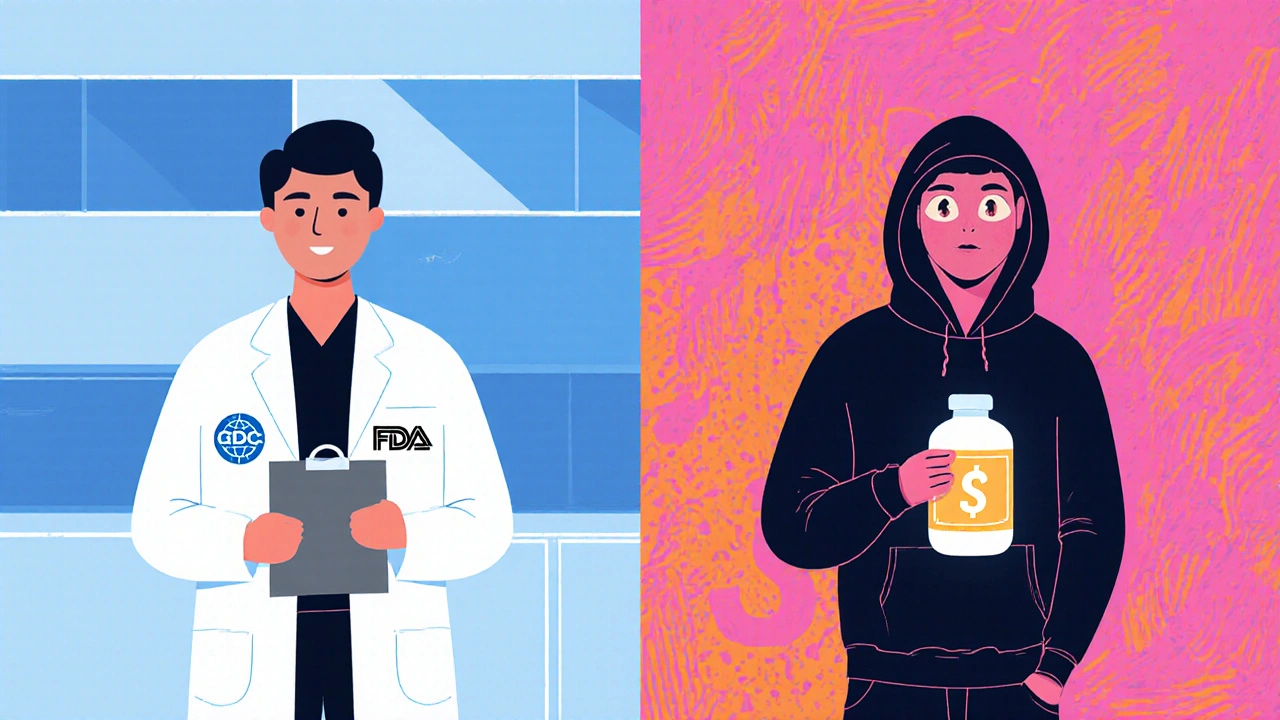
How to Verify Any Health Claim
Don’t guess. Don’t trust a video. Use this simple three-step check every time you see health advice:- Who’s saying it? Look up their name. Are they a licensed doctor, pharmacist, or registered dietitian? Check their credentials on state medical boards or professional association websites. If you can’t verify their license, ignore them.
- What’s the source? Is the advice backed by the CDC, FDA, Mayo Clinic, or a peer-reviewed journal? If the only source is a TikTok comment or a YouTube channel with no citations, it’s not reliable.
- Is it one-sided? Real medicine talks about risks, side effects, and alternatives. If the post only talks about benefits and never mentions dangers-or if it says “your doctor is lying”-that’s a scam.
Real People, Real Harm
This isn’t theoretical. People have ended up in emergency rooms because they followed social media advice. One woman stopped her thyroid medication after watching a YouTube video that claimed “meds are poison.” She developed heart failure. A teenager took high doses of zinc after a viral post said it “cured colds.” He lost his sense of smell permanently. A man with diabetes switched to a “miracle” herbal tea instead of insulin. He was hospitalized in ketoacidosis. The CDC and FDA have documented hundreds of cases where social media advice led to dangerous drug interactions, overdoses, or untreated conditions. The worst part? Many of these people weren’t careless-they were desperate. They trusted someone who looked like them, spoke like them, and made them feel heard.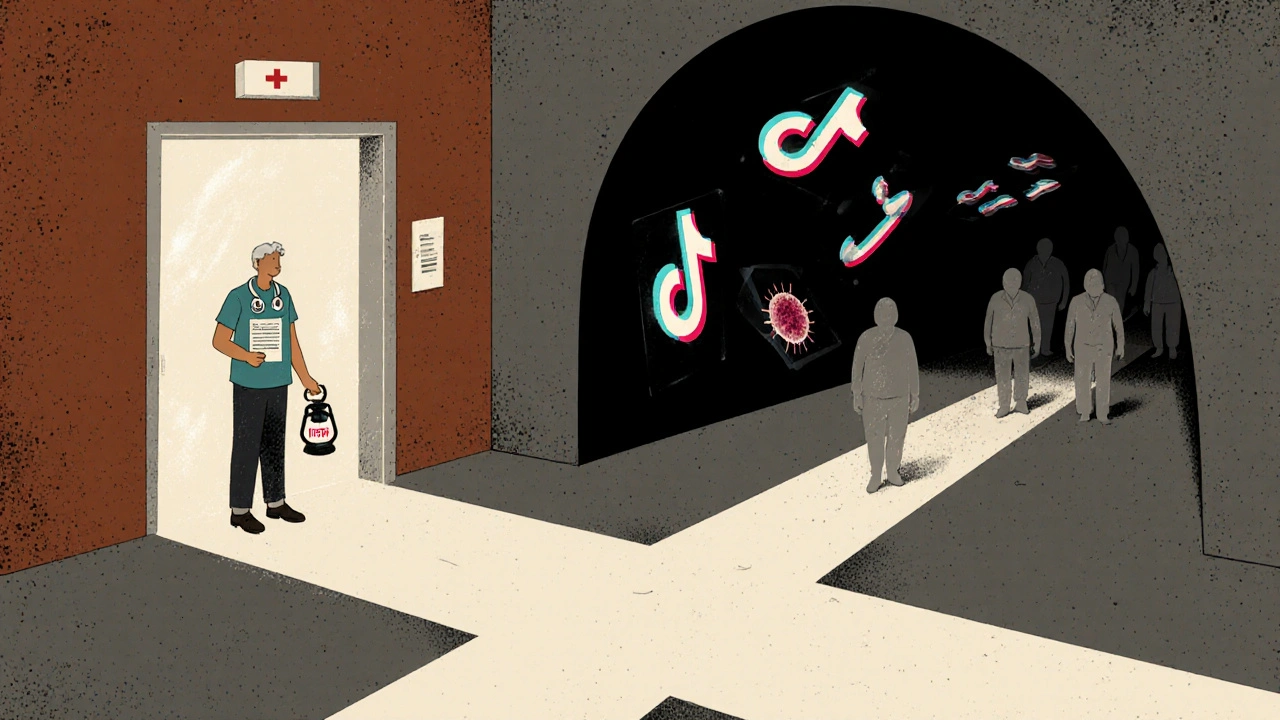
What You Can Do Right Now
Protect yourself and others with these simple steps:- Follow only verified health accounts. Look for accounts run by hospitals (Mayo Clinic, Johns Hopkins), government agencies (CDC, FDA), or professional groups (American Heart Association, American Pharmacists Association).
- Never start, stop, or change a medication based on social media. Always talk to your doctor or pharmacist first. They know your history, your allergies, your other meds. No influencer does.
- Teach younger people how to spot fake advice. Teens and young adults are the most vulnerable. They trust influencers more than doctors. Show them how to check sources. Help them understand that algorithms are designed to manipulate, not inform.
- Report dangerous posts. Most platforms let you report misleading health content. Use that tool. It helps reduce the spread.
- Don’t share unverified advice-even if you think it’s harmless. Sharing something you believe is true still helps it spread. If you’re not 100% sure, don’t share it.
When in Doubt, Talk to a Real Professional
The safest thing you can do is ask a licensed healthcare provider. Pharmacists are often the most accessible. They can tell you if a supplement interacts with your meds. Nurses can explain side effects. Doctors can help you weigh risks and benefits. It’s not just safer-it’s the law. In most states, it’s illegal for unlicensed people to give medical advice to patients who aren’t under their care. That means every viral “doctor” on Instagram is breaking the law. You’re not being paranoid-you’re being smart.Final Thought: Your Health Isn’t a Trend
Medication isn’t fashion. You don’t need to “try” it because someone else did. Your body is unique. Your history matters. Your safety is non-negotiable. Social media is full of noise. But your health? That’s the one thing you can’t afford to get wrong.Can I trust health advice from a doctor on TikTok?
Not unless you can verify their license. Many people on TikTok claim to be doctors but aren’t licensed-or they’re licensed in a different country. Always check their credentials on your state’s medical board website. A real doctor won’t promote supplements or miracle cures in a 60-second video.
What should I do if I already followed unsafe advice?
Stop immediately. Don’t wait for symptoms. Call your doctor or pharmacist and tell them exactly what you did-what supplement you took, what med you stopped, or what change you made. They can assess your risk and tell you if you need to be checked. It’s not embarrassing-it’s smart.
Are all supplements unsafe on social media?
No-but the way they’re promoted online almost always is. Supplements aren’t regulated like prescription drugs. That means companies can make false claims without proof. If a supplement is being sold with promises like “boosts immunity” or “cures inflammation,” it’s likely misleading. Always ask your pharmacist if a supplement is safe for you.
Why do people believe fake medical advice?
Because it feels personal. Real doctors often have limited time and use complex language. Influencers speak simply, share stories, and make you feel understood. They tap into fear, hope, and frustration. That emotional connection makes false advice stick-even when it’s wrong.
Can social media ever be useful for health info?
Yes-but only if you follow verified accounts. Official pages from the CDC, WHO, Mayo Clinic, and FDA share accurate, updated info. You can also find support groups for chronic conditions, as long as you don’t take medical advice from them. Use social media to find resources, not to make treatment decisions.



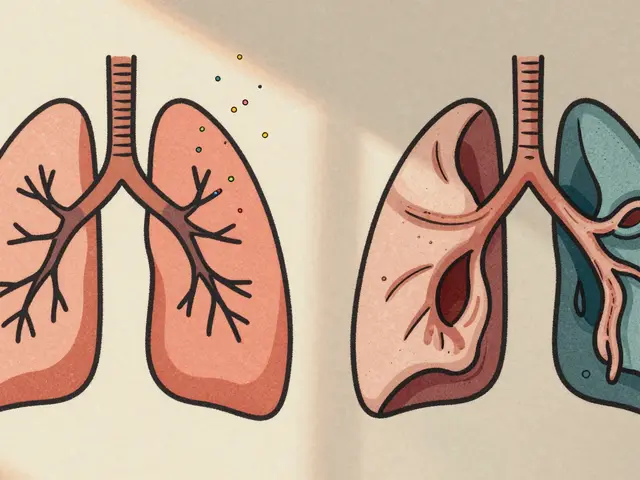
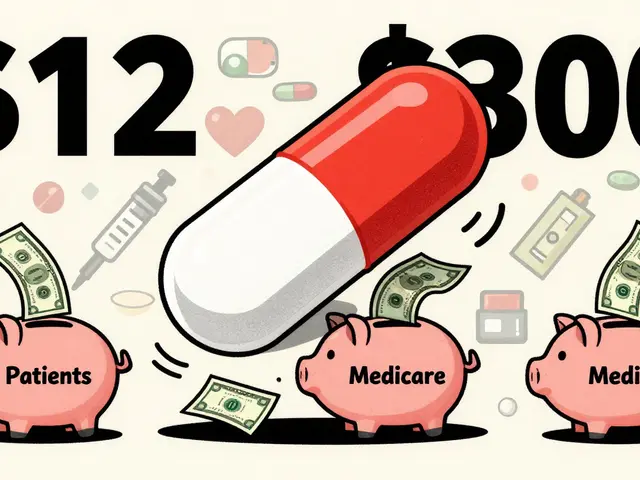

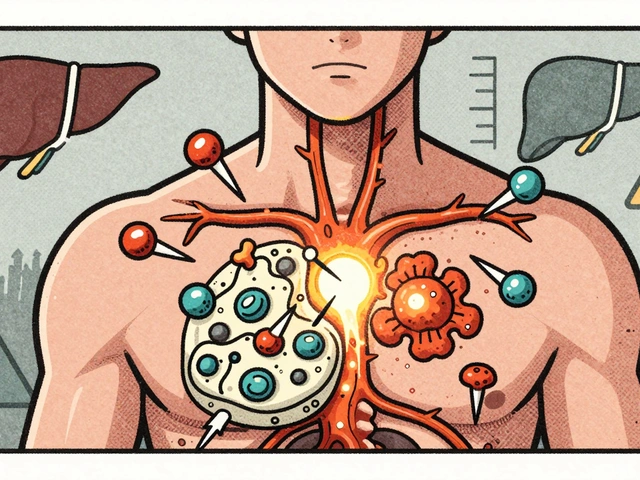
8 comments
Margo Utomo
Oh honey, I saw a TikTok yesterday where someone said lemon water cures PTSD. 🤦♀️ I swear, if I had a dollar for every ‘miracle cure’ post I’ve seen, I’d be retired in Bali with my cat and a lifetime supply of probiotics. 🐱🍋
Real talk: if your ‘doctor’ on Instagram has a ‘Get Rich Quick’ course in their bio, RUN. I once DM’d a ‘functional medicine guru’ who told me to replace my antidepressants with ‘crystal-infused chamomile tea.’ I didn’t. I called my therapist instead. She laughed, then sent me a PDF on how to spot pseudoscience. Best 10 minutes of my life.
Also-why do people think ‘natural’ = safe? arsenic is natural. botulism is natural. Your body doesn’t care if it came from a tree or a lab-it cares if it works and won’t kill you. 🌿💀
Follow @CDCgov. Follow @FDAgov. Unfollow everyone who says ‘your doctor is lying.’ You’re not a patient-you’re a consumer. And this ain’t Amazon.
Also, if you’re gonna take supplements? Talk to a pharmacist. Not a guy with 200K followers who calls himself ‘The Biohacker.’ They’ll tell you if it’ll interact with your blood pressure med. And they won’t sell you a $90 ‘detox’ powder. 🧪🩺
Matt Wells
It is, regrettably, unsurprising that the conflation of anecdotal testimony with clinical evidence has reached such a zenith in the digital sphere. The epistemological foundations of evidence-based medicine are being systematically undermined by algorithmically amplified testimonials, which, by virtue of their emotional salience, are disproportionately persuasive to laypersons lacking training in scientific literacy.
Furthermore, the regulatory vacuum surrounding digital health influencers is not merely a failure of policy-it is a moral abdication. The absence of licensure verification protocols on social media platforms constitutes a de facto endorsement of malpractice. One cannot, in good conscience, permit individuals without board certification to dispense therapeutic recommendations to vulnerable populations under the guise of ‘wellness.’
It is also worth noting that the term ‘miracle cure’ is not merely hyperbolic-it is a violation of the Hippocratic Oath’s implicit prohibition against false hope. The proliferation of such terminology is not merely misleading; it is ethically indefensible.
That said, the solution is not censorship, but pedagogy. We must integrate critical appraisal of online health claims into secondary school curricula. The ability to distinguish between peer-reviewed literature and influencer content should be as fundamental as literacy itself.
George Gaitara
Wow. So you’re telling me people are dumb? Groundbreaking. I’ve been saying this since 2018. Why is this even an article? It’s like writing a 2000-word essay on why you shouldn’t stick your finger in an electrical socket.
Also, why are you blaming algorithms? People are just lazy. They’d rather watch a 30-second video than read a 5-page FDA pamphlet. It’s not the platform’s fault-it’s the audience’s. And honestly? I don’t care if some guy in Ohio dies because he thought turmeric fixes his heart failure. That’s Darwinism in action.
Also, ‘talk to your doctor’? LOL. Most doctors don’t even know what’s in the supplements people are taking. They’re just as clueless. You’re not solving anything-you’re just making people feel guilty for being stupid.
Deepali Singh
Interesting. The data shows that 60% of Americans use the internet for health info. But what’s the sample size? Is it nationally representative? Was there any stratification by socioeconomic status? Did the study control for digital literacy? And where are the confidence intervals?
Also, you mention ‘echo chambers’-but have you accounted for selection bias in algorithmic exposure? The Danish study you cite used self-reported data. That’s not reliable. And ‘pre-bunking’? That’s a behavioral economics term, not a clinical intervention. You’re conflating communication theory with medical practice.
And yet-you’re still right. People die. But you’re not addressing the root cause: systemic healthcare access failure. If people had real doctors who listened, they wouldn’t turn to TikTok. This is a symptom, not a disease.
Sylvia Clarke
Okay, but can we just take a second to appreciate how *dramatic* this whole thing is? Like, we’re treating social media health advice like it’s the plague… and yet, we’ve got people in the comments saying ‘just stop being dumb’ and others quoting peer-reviewed journals like they’re in a TED Talk.
Here’s the truth: people aren’t stupid-they’re lonely. They’re scared. They’ve been dismissed by doctors who rushed through appointments. So they find someone who says, ‘I felt this too,’ and suddenly it’s a lifeline.
And yeah, some of it’s nonsense. But let’s not pretend the medical system is some pristine cathedral of wisdom. I’ve had pharmacists forget my meds. I’ve had nurses miss lab results. We’re all flawed. So instead of shaming people for Googling ‘can I take CBD with my blood thinner?’-why not meet them where they are?
Maybe the real solution isn’t ‘don’t trust influencers’… but ‘make real healthcare feel as human as a TikTok video.’
Also-yes, I’ve unsubscribed from 17 ‘healing gurus.’ But I still follow @MayoClinic. And I’ve shared their posts 3 times this week. Because sometimes, the antidote to chaos is calm, consistent, credible voices.
And if you’re reading this and you’re scared? You’re not alone. Talk to someone. Even if it’s just me. I’ll reply. 🌱💛
Jennifer Howard
THIS IS A NATIONAL EMERGENCY. I HAVE BEEN WARNING PEOPLE FOR YEARS. I SAW A WOMAN ON INSTAGRAM TELLING PEOPLE TO STOP THEIR INSULIN BECAUSE SHE ‘FELT BETTER.’ SHE WAS 23. SHE DIED. I REPORTED IT. THE PLATFORM DID NOTHING. I CALLED THE FDA. THEY SAID ‘WE CAN’T ACT UNLESS THERE’S A COMPLAINT.’
HOW IS THIS STILL HAPPENING? PEOPLE ARE DYING BECAUSE SOMEONE POSTED A VIDEO WITH A FILTER AND A SONG BY LIL NAS X. THIS ISN’T JUST ‘MISINFORMATION’-IT’S MURDER BY INFLUENCER.
THEY SHOULD BE CRIMINALLY CHARGED. NOT JUST ‘REPORTED.’ CRIMINAL. CHARGED. I HAVE A FRIEND WHO GOT A ‘HEALTH COACH’ CERTIFICATE ONLINE FOR $49. SHE’S NOW ‘ADVISOR’ TO 50,000 PEOPLE. THAT’S NOT A BUSINESS. THAT’S A TERRORIST CELL.
AND YOU THINK ‘TALK TO YOUR DOCTOR’ IS ENOUGH? YOUR DOCTOR IS BUSY. YOUR DOCTOR IS OVERWORKED. YOUR DOCTOR ISN’T ON TIKTOK. SO WHO’S GOING TO SAVE YOU? NO ONE. THAT’S WHY WE’RE LOSING PEOPLE.
IF YOU SHARE ONE OF THESE VIDEOS, YOU’RE A PARTICIPANT IN THE HOMICIDE. STOP BEING A PASSIVE CONSUMER. BE A WITNESS. BE A WHISTLEBLOWER. BE A HERO.
OR STFU AND LET PEOPLE DIE.
John Wayne
Interesting how you frame this as a crisis of misinformation. What about the crisis of overmedication? The CDC reports that 50% of adults take at least one prescription drug daily. Many of these are unnecessary. And yet, you vilify people who question pharmaceuticals while ignoring the billion-dollar industry that profits from chronic dependency.
It’s easy to call someone a scammer when they say ‘lemon water cures diabetes.’ But what about the doctor who prescribes statins for low-risk patients? Who profits from that? Who gets paid to fund ‘evidence’ that supports drug use?
So no-I don’t trust influencers. But I also don’t trust the FDA when they approve drugs with 30% higher mortality rates than generics. The system is broken. Blaming TikTok is just convenient.
Eva Vega
Let’s not conflate epistemic humility with gullibility. The core issue isn’t that people believe influencers-it’s that they’ve been systematically excluded from participatory healthcare. When clinicians dismiss patient-reported outcomes as ‘anecdotal,’ they create a vacuum. Influencers fill it with narrative, not because they’re evil, but because they’re the only ones showing up.
What’s missing isn’t regulation-it’s reciprocity. We need clinicians who engage with digital communities-not just to debunk, but to co-create. A pharmacist live-streaming a Q&A on supplement interactions? That’s the antidote. Not another article about red flags.
And for the record: ‘licensed professional’ doesn’t mean infallible. I’ve seen board-certified MDs prescribe antibiotics for viral URIs. But we don’t call them ‘scammers.’ We call it ‘clinical inertia.’
So yes-verify credentials. But also demand better from the system that’s supposed to protect you. Because the real danger isn’t the influencer.
It’s the silence.